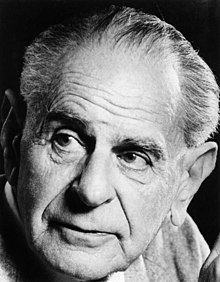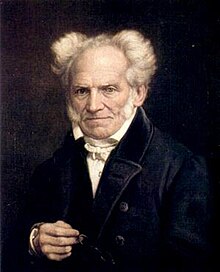
Logicians
Logic is the study of correct reasoning. It includes both formal and informal logic.
8 episodes
Episodes in this category also belong to the following categories:
Averroes
Melvyn Bragg discusses the philosopher Averroes who worked to reconcile the theology of Islam with the rationality of Aristotle, achieving both fame and infamy.
5 October 2006
Featuring: Amira Bennison, Peter Adamson, Anthony Kenny
PhilosophyEpistemologistsCritics of atheismPhilosophers of literaturePhilosophers of logicLogiciansSocial philosophersAristotelian philosophersArabic-language commentators on AristotleCritics of deismPhilosophers of culturePhilosophers of languageIslamic philosophersPhilosophers of psychologyPhilosophers from al-AndalusOntologistsPhilosophers of mindPolitical philosophersPhilosophers of religionPeople from Córdoba, Spain12th-century Muslim theologiansPhilosophers of sciencePhilosophers of historyCritics of ChristianityAvicenna
Melvyn Bragg and guests discuss Avicenna, among the most important philosophers in the history of Islam.
8 November 2007
Featuring: Peter Adamson, Amira Bennison, Nader El-Bizri
PhilosophyPhilosophers of logicEpistemologistsLogiciansCourt physiciansCritics of atheismIslamic philosophersPhilosophers of religionPhilosophers of psychologyIranian ethicists, Iranian logiciansPhilosophers of mathematicsPhilosophers of scienceAristotelian philosophersMusic theorists of the medieval Islamic worldAlchemists of the medieval Islamic worldMedieval Iranian pharmacologists, Transoxanian Islamic scholarsOntologistsPhilosophers of mindClassical humanistsBertrand Russell
Melvyn Bragg and his guests discuss the influential 20th-century British thinker Bertrand Russell, widely regarded as one of the founders of Analytical philosophy.
6 December 2012
Featuring: A. C. Grayling, Mike Beaney, Hilary Greaves
PhilosophyNobel laureates in LiteratureBritish philosophers of languageGeorgistsEnglish political writersFree love advocatesSet theoristsAristotelian philosophersWriters about religion and scienceJerusalem Prize recipientsFellows of Trinity College, CambridgeEnglish logiciansPhilosophers of mathematicsBritish historians of philosophyEmpiricistsOntologistsMetaphysics writersBritish political philosophersFellows of the Royal SocietyMetaphilosophersTheorists on Western civilizationBritish ethicistsPhilosophers of literatureBritish free speech activists20th-century English philosophersAnalytic philosophersEnglish humanistsRhetoric theoristsAtheist philosophersEnglish political philosophersEnglish anti-fascistsEnglish people of Scottish descentPhilosophers of historyEnglish agnostics20th-century atheistsConsequentialistsEnglish socialistsPhilosophers of social scienceBritish philosophers of religionPresidents of the Aristotelian SocietyLogiciansPhilosophers of lawPhilosophers of sexuality19th-century English mathematiciansCritics of work and the work ethicSecular humanistsPhilosophers of technologyPhilosophers of economicsWriters about globalizationBritish philosophers of educationBritish philosophers of culture, English pacifistsBritish philosophers of logicCritics of the Catholic ChurchPeople from MonmouthshireAlumni of Trinity College, CambridgeLinguistic turnPhilosophers of loveEuropean democratic socialistsBritish consciousness researchers and theoristsWriters about activism and social changeEnglish Nobel laureatesMembers of the Order of MeritEnglish prisoners and detaineesUtilitariansIntellectual historians, University of Chicago facultyEnglish scepticsBritish critics of ChristianityEnglish people of Welsh descentUniversal basic income writersBritish philosophers of mind19th-century English philosophersBritish critics of religionsAcademics of the London School of Economics, British philosophers of science19th-century atheistsUniversity of California, Los Angeles facultyAnti-nationalists20th-century English mathematiciansEnglish essayistsFreethought writersBritish atheism activistsWriters about communism19th-century English essayistsEnglish male non-fiction writersKant's Copernican Revolution
Melvyn Bragg and guests discuss Kant's ideas on how the world depends on us, on the limits of human knowledge and why we are bound to ask questions we cannot answer.
3 June 2021
Featuring: Fiona Hughes, Anil Gomes, John Callanan
PhilosophyGerman philosophers of artNatural law ethicistsGerman philosophers of scienceGerman political philosophersMetaphilosophersPhilosophers of social sciencePhilosophers of warGerman Lutherans18th-century philosophersTheoretical historiansGerman nationalists19th-century German philosophersTheorists on Western civilizationPhilosophers of literatureGerman idealistsAge of EnlightenmentPhilosophers of logicLogiciansPhilosophers of lawPhilosophers of sexuality18th-century German writersPhilosophy writersRationalists18th-century German male writersKantianismGerman philosophers of mind, German philosophers of religionWriters about religion and science18th-century German philosophers, 18th-century essayists19th-century German male writers19th-century Prussian peopleHumor researchersGerman philosophers of culture19th-century German essayistsPeople of the Age of EnlightenmentGerman agnosticsGerman male essayistsOntologistsGerman ethicists, German philosophers of educationLecturersMembers of the Prussian Academy of SciencesIdealistsNatural philosophersEnlightenment philosophersGerman epistemologistsWriters about activism and social change19th-century German non-fiction writersGerman philosophers of historyGerman male non-fiction writersGerman logicians, Kantian philosophersMill
Melvyn Bragg discusses the 19th century political philosopher John Stuart Mill and his treatise On Liberty which is one of the sacred texts of liberalism.
18 May 2006
Featuring: A. C. Grayling, Janet Radcliffe Richards, Alan Ryan
PhilosophyBritish political philosophersHonorary Fellows of the Royal Society of EdinburghEnglish libertariansBritish philosophers of languageConsequentialistsInfectious disease deaths in FranceEnglish socialistsUtilitariansEnglish suffragistsTheorists on Western civilizationBritish ethicistsBritish socialistsEnglish political writersLogiciansEnglish feminist writers, English feministsBritish free speech activistsPhilosophers of sexualityPhilosophy writersBritish classical liberal economistsPhilosophers of economicsBritish social liberals19th-century English non-fiction writersFellows of the American Academy of Arts and SciencesPhilosophers of cultureRectors of the University of St AndrewsPhilosophers of psychologyBritish philosophers of mindEnglish logicians19th-century English philosophersBritish philosophers of logicEnglish autobiographersAnglo-ScotsUK MPs 1865–1868Empiricists19th-century English writersVoting theoristsEuropean democratic socialistsEnglish essayistsEnglish political philosophers19th-century English essayistsEnglish male non-fiction writersEnglish non-fiction writersPhilosophers of scienceEnglish people of Scottish descentPhilosophers of historyEnglish republicansScholars of feminist philosophyEnglish agnosticsBritish male essayistsPlato's Gorgias
Melvyn Bragg and guests discuss arguably the most personal of Plato's dialogues in which he examines the values that led to the execution of his mentor Socrates by drinking hemlock
25 November 2021
Featuring: Angie Hobbs, Frisbee Sheffield, Fiona Leigh
PhilosophyNatural law ethicistsPlatonismAncient Greek slaves and freedmenPhilosophers of deathTheorists on Western civilizationAncient Greek physicistsMoral realistsLogiciansAncient Greek epistemologists, Ancient Greek ethicistsRationalistsEpigrammatists of the Greek AnthologyPupils of SocratesPhilosophers of educationAncient Greek philosophers of mindOntologistsPhilosophers of loveClassical theismAttic Greek writersAncient Greek logiciansAncient Greek political philosophersIdealistsNatural philosophersAncient Greek metaphysiciansAncient Athenian philosophersPopper
Melvyn Bragg discusses the philosopher Karl Popper, author of The Open Society and a seminal thinker about science.
8 February 2007
Featuring: John Worrall, Anthony O'Hear, Nancy Cartwright
PhilosophyBritish political philosophersEpistemologistsCambridge University Moral Sciences ClubForeign associates of the National Academy of SciencesTheorists on Western civilizationBritish ethicistsPhilosophers of logicKnights BachelorLogiciansPresidents of the Aristotelian SocietySocial philosophersPhilosophers of technologyRationalistsAristotelian philosophersPhilosophers of economicsWriters about religion and scienceWriters about globalizationBritish philosophers of educationBritish social liberalsRecipients of the Austrian Decoration for Science and ArtBritish male non-fiction writersPhilosophers of culturePhilosophers of mathematicsBritish historians of philosophyJewish agnosticsAcademics of the London School of Economics, British philosophers of scienceCritics of religions20th-century British philosophers20th-century Austrian philosophers, Austrian agnostics, Austrian essayists, Austrian logicians, British agnostics, British logicians, British people of Austrian-Jewish descent, Naturalised citizens of the United Kingdom, Writers from ViennaOntologistsPhilosophers of mindRecipients of the Pour le Mérite (civil class)MetaphysiciansJewish philosophersPolitical philosophersPhilosophers of religionBritish consciousness researchers and theoristsJewish ethicistsMembers of the Order of the Companions of HonourWriters about activism and social change20th-century British essayistsCritics of MarxismPhilosophers of historyFellows of the British AcademyMetaphysics writersBritish male essayistsSchopenhauer
Melvyn Bragg and guests discuss the pessimistic philosophy of Arthur Schopenhauer and his extraordinary influence.
29 October 2009
Featuring: A. C. Grayling, Beatrice Han-Pile, Christopher Janaway
PhilosophyGerman philosophers of artGerman philosophers of scienceGerman political philosophers19th-century German writersMetaphilosophersGerman eugenicists19th-century German philosophersTheorists on Western civilizationSimple living advocatesPhilosophers of literatureGerman idealistsPhilosophers of logicLogiciansPhenomenologistsPhilosophy writersCritical theoristsGerman philosophers of mind, German philosophers of religionAcademic staff of the Humboldt University of Berlin19th-century German male writersAphoristsGerman philosophers of languagePhilosophers of psychologyUniversity of Göttingen alumniGerman critics of ChristianityGerman philologistsGerman philosophers of culture19th-century German essayists19th-century atheistsCritics of religionsAtheist philosophersGerman male essayistsCritics of JudaismOntologistsPhilosophers of loveGerman writers on atheismGerman ethicists, German philosophers of educationGerman monarchistsPhilosophers of pessimismGerman epistemologistsAnti-natalistsGerman philosophers of historyGerman male non-fiction writersGerman logicians, Kantian philosophers







